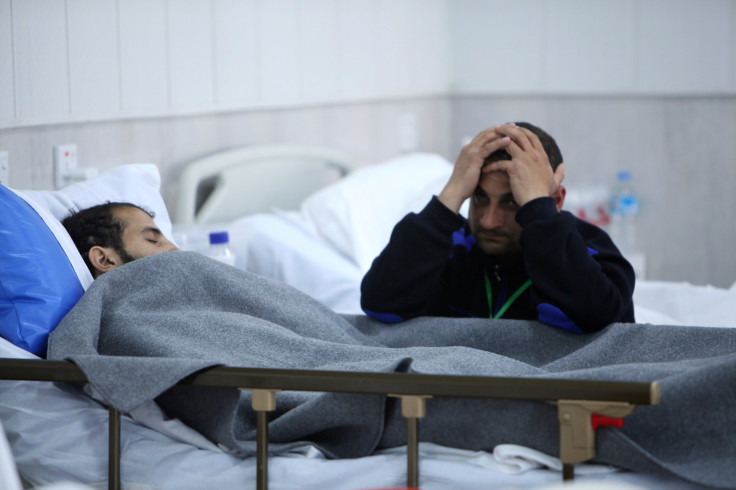ISIS In Iraq: Mosul Overwhelmed With PTSD After Years of Islamic State Rule

After more than two years of rule by the Islamic State group, also known as ISIS, many civilians living in Mosul, Iraq are showing signs of PTSD, overwhelming local mental health resources. Many of those who managed to escape the city are haunted by the terrorist group's brutality, and hundreds of thousands more are still living under ISIS rule in western Mosul, which is under siege by U.S.-backed coalition forces.
The Irbil Psychiatric Hospital is located 50 miles east of Mosul and treats many Iraqis fleeing the city. The hospital's director said trauma-induced mental illness in the city appeared to be double that of previous wars.
Read: ISIS In Iraq Hangs Civilian Bodies From Electrical Poles In Mosul Fight
"As a result of living under [ISIS] rule for two years, not only the war, but the killings, beheadings, cutting off of hands in front of people, everyone will have some kind of psychological symptoms," Dr. Karzan Jalal Shah told the Associated Press.
"This kind of stress has a negative impact on future mental health," Shah said. "There is no adequate mental health support in Iraq. We expect to see higher rates of suicide and self-harm, especially among children."
ISIS captured Mosul in June 2014 as part of the terror group's rapid expansion across Syria and Iraq. They imposed harsh laws with brutal punishments for non-compliance. Women weren't allowed to leave the house alone without covering their faces. Men had to wear beards a specified length. Smoking and communicating with the outside world became forbidden.
"If they found a cellphone in your pocket, you will be killed," Mosul resident Younis Abdullah told CBC News in March. "[ISIS] are animals, really. They don't respect humanity."
At the same time water, heat and electricity became rationed or unavailable. Food prices skyrocketed. Businesses closed or were appropriated by ISIS forces. Girls were not allowed to attend school.
But as the Iraq Army has fought back, with the support of U.S. airstrikes, ISIS has now withdrawn from all the cities it once controlled in Iraq, except for Mosul, where it still controls the western part of the city. Civilians there are not just threatened by ISIS, but by a coalition bombing campaign. In March, an airstrike killed 200 Iraqi civilians.
© Copyright IBTimes 2025. All rights reserved.






















